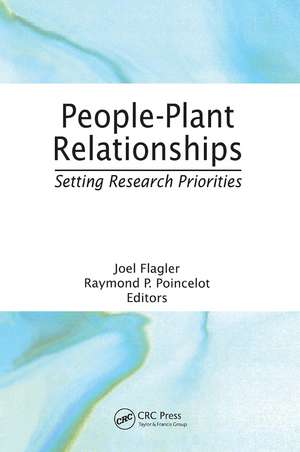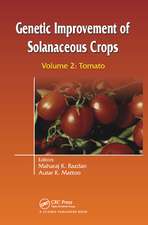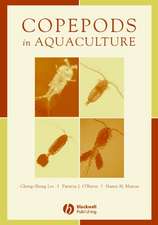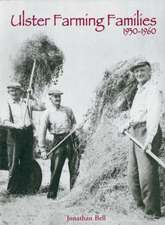People-Plant Relationships: Setting Research Priorities
Autor Raymond P Poincelot, Joel Flagleren Limba Engleză Paperback – 2 dec 2019
| Toate formatele și edițiile | Preț | Express |
|---|---|---|
| Paperback (1) | 466.96 lei 6-8 săpt. | |
| CRC Press – 2 dec 2019 | 466.96 lei 6-8 săpt. | |
| Hardback (1) | 684.84 lei 6-8 săpt. | |
| CRC Press – 3 ian 1994 | 684.84 lei 6-8 săpt. |
Preț: 466.96 lei
Preț vechi: 549.36 lei
-15% Nou
Puncte Express: 700
Preț estimativ în valută:
89.36€ • 97.04$ • 75.07£
89.36€ • 97.04$ • 75.07£
Carte tipărită la comandă
Livrare economică 22 aprilie-06 mai
Preluare comenzi: 021 569.72.76
Specificații
ISBN-13: 9780367449582
ISBN-10: 0367449587
Pagini: 466
Dimensiuni: 152 x 229 x 24 mm
Greutate: 0.62 kg
Ediția:1
Editura: CRC Press
Colecția CRC Press
ISBN-10: 0367449587
Pagini: 466
Dimensiuni: 152 x 229 x 24 mm
Greutate: 0.62 kg
Ediția:1
Editura: CRC Press
Colecția CRC Press
Public țintă
Academic and Professional ReferenceCuprins
Plants and Human Culture. Plants and Human Culture. American Women and Their Gardens: A Study in Health, Happiness,
and Power, 1600-1900. Are We Afraid of Plants? Exploring Patriarchal Society’s Devaluing of Plants, Women, and Nature. Consuming a Therapeutic Landscape: A Multicontextual Framework for Assessing the Health Signifance of Human-Plant Interactions. Adoption and Abandonment of Southeast Asian Food Plants. Gathered Food and Culture Change: Traditions in Transition in Northeastern Thailand. People, Plants, and Proto-Paysage: A Study of Ornamental Plants in Residential Front Yards in Honolulu, Hawaii. The Gardens of Hikone, Japan: Studying People-Plant Relationships in Another Culture. From Open-Mindedness to Naturalism: Garden Design and Ideology in Germany During the Early 20th Century. Plants and the Community. Cultivating People-Plant Relationships in Community and Cultural Heritage Gardens, San Jose, California (1977-1992). Gardening’s Impact on People’s Behavior. Gardening Changes a Community. Down to Earth Benefits of People-Plant Interactions in Our Community. Human and Plant Ecology: Living Well with Less. Evaluating Horticultural Therapy: The Ecological Context of Urban Jail Inmates. Plants and the Individual. Plants and the Individual: A Recent History. People-Plant Principles from the Past. The Evolutionary Importance of People-Plant Relationships. Indoor Plants and Pollution Reduction. Growing Fear: Home Horticulture and the Threat of Lyme Disease. Studying the Corporate Garden. Part II, Horticultural Therapy. Corrections and the Green Industry. Use of Sensory Stimulation with Alzheimer Patients in a Garden Setting, RTI, Hawthorne, New York. Measuring the Quality of Treatment in Horticultural Therapy Groups. Surveying the Therapeutic Landscape: A Quest for Cases of Outdoor Therapy Settings. Combining Phototherapy with Horticulture Therapy. Research and Implementation. Historical Perspect
and Power, 1600-1900. Are We Afraid of Plants? Exploring Patriarchal Society’s Devaluing of Plants, Women, and Nature. Consuming a Therapeutic Landscape: A Multicontextual Framework for Assessing the Health Signifance of Human-Plant Interactions. Adoption and Abandonment of Southeast Asian Food Plants. Gathered Food and Culture Change: Traditions in Transition in Northeastern Thailand. People, Plants, and Proto-Paysage: A Study of Ornamental Plants in Residential Front Yards in Honolulu, Hawaii. The Gardens of Hikone, Japan: Studying People-Plant Relationships in Another Culture. From Open-Mindedness to Naturalism: Garden Design and Ideology in Germany During the Early 20th Century. Plants and the Community. Cultivating People-Plant Relationships in Community and Cultural Heritage Gardens, San Jose, California (1977-1992). Gardening’s Impact on People’s Behavior. Gardening Changes a Community. Down to Earth Benefits of People-Plant Interactions in Our Community. Human and Plant Ecology: Living Well with Less. Evaluating Horticultural Therapy: The Ecological Context of Urban Jail Inmates. Plants and the Individual. Plants and the Individual: A Recent History. People-Plant Principles from the Past. The Evolutionary Importance of People-Plant Relationships. Indoor Plants and Pollution Reduction. Growing Fear: Home Horticulture and the Threat of Lyme Disease. Studying the Corporate Garden. Part II, Horticultural Therapy. Corrections and the Green Industry. Use of Sensory Stimulation with Alzheimer Patients in a Garden Setting, RTI, Hawthorne, New York. Measuring the Quality of Treatment in Horticultural Therapy Groups. Surveying the Therapeutic Landscape: A Quest for Cases of Outdoor Therapy Settings. Combining Phototherapy with Horticulture Therapy. Research and Implementation. Historical Perspect
Notă biografică
Poincelot, Raymond P; Flagler, Joel
Descriere
Presenting the latest research on cross-cultural people-plant relationships, this volume conveys the psychological, physiological, and social responses to plants and the significant role these responses play in improved physical and mental health. With chapters written by field experts, it identifies research priorities and methodologies and outlin




















